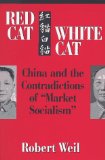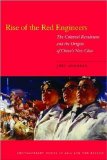Class conflicts in the transformation of China
From Aufheben #16 (2008).
Abstract:
In our previous article on China, ‘China and World Capitalism‘ (Aufheben #14, 2006), we examined the immense economic transformation, which has been occurring in China over the last ten years, and how this has involved the Chinese economy being integrated as a distinct epicentre in the American-centred world accumulation of capital. In this article we shall turn to consider the class conflicts that have arisen in China as a result of this economic transformation. We shall identify and outline three areas where struggles have emerged. First, the struggles of the old industrial working class that have resulted from the restructuring and downsizing of China’s old industries, which had been constructed during Mao’s era. Secondly, the struggles of the peasants against the dispossession and despoliation of their land, which has been brought about by the rapid and reckless accumulation of capital. And finally, the struggles that are arising from the newly emerging working class of China’s new expanding industrial sectors.
From the conclusion:
[C]ontrary to what it may appear at first sight, the immense economic transformation of China has resulted in widespread, and at times quite intense, resistance from both workers and peasants. However, [...t]hrough the combination of making timely minor concessions and the ever present threat of repression, the Chinese state has, for the most part, succeeded in restricting social protests to narrow and parochial issues and focussed on the malfeasance and corruption of local party-state cadre.[...] However [...] there are signs that China will find it increasingly difficult to provide world capital with a plentiful supply of cheap and compliant labour-power.[...]
Due to the limitations of our sources, the emphasis of this article has been on the struggles of danwei workers that occurred several years ago. Important as they are [...] they are, what may temred conflicts of class de-composition, or what Beverly Silver has called Polanyi-type struggle.[... C]apital may take flight from class conflict and find a new home but it cannot escape its nemesis forever. Having alighted in China, capital is in the process of summoning into being anew working class, as the peasant migrant workers turn into a fully fledged proletariat. No doubt the struggles of this new working class will become increasingly important in the future.
Related posts:
- aufheben & walker on class conflict in urban & rural China
- Restructuring and the Historical Fate of China’s Working Class
- Class Changes in China and Their Implications
- The Working Class against the Harmonious Society: Struggle in the Economic Powerhouse
- Current crisis regime and impact on class struggle in India





Leave your response!